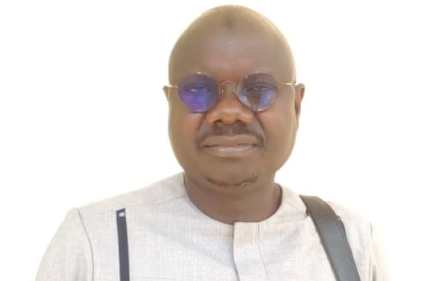Views: 3
On the occasion of the 1st international scientific symposium on mental health in Africa, Professor Abou-Bakari Imorou led the inaugural communication on the theme: “Social representations, etiologies and itineraries of care around mental illness”. It took place on Tuesday, December 13, 2022, in the Etisalat amphitheater of the University of Abomey-Calavi.
What you should know : Mental illness is a reality in Benin and the actors associate its origin with several factors such as: the abusive consumption of narcotics, witchcraft or bad luck, or psychological or psychic disorder. These factors often explain the behavior of the members of the entourage towards the patient. In his speech before an audience of personalities, health practitioners, the WHO representative, teacher-researchers from universities in Benin and neighboring countries, Dr. Abou-Bakari Imorou specified that mental health is becoming a concern in the sense that when a mentally ill person appears (whatever the cause) in a family, the parents seek all kinds of approaches for his cure. This search for healing reconfigures or structures the social link between the parents and the immediate entourage of the patient. Indeed, relatives act according to the perception they have of the disease. However, these perceptions vary from one moment to another, especially since mental illness is non-communicable with phases of remission and crisis where the biomedical management does not completely satisfy the patient. Consequently, according to the communicator, plural remedies remain dependent on perceptions and representations of mental illness.
What is the purpose of this communication : The interest is to bring to understand that in the assumption of responsibility, it is not a chronological succession. It is in this sense that during his communication, Dr. Abou-Bakari Imorou emphasized the care space. He mentioned that there is an overlay of support spaces. “There are patients who, while being in biomedical institutions, have recourse to the knowledge of traditional therapists and vice versa. It is when we have become fully aware of this interaction between care spaces that we can ensure better follow-up of the mentally ill,” he said. For him, the management of mental illnesses is linked to a certain number of representations. These representations are largely influenced by the cultures to which they belong and the standards of reference. “These reference standards ultimately mean that in certain social groups, the mentally ill are strongly stigmatized”, underlined Dr Abou-Bakari Imorou. According to these explanations, the universe of representations refers to perceived causes. And these causes are grouped into three blocks. “We consider mental illnesses as a way of life. That is to say a bad behavior or consumption of narcotics. In the end, it is said that he himself is the cause of his illness,” he said. This first causality is extremely difficult to manage because, according to the Professor, the individual as long as he does not give up the behaviors that made him sick, it becomes difficult. “The other cause is that of the disease caused because we are in the universe of persecution and the third is what we call natural diseases. Depending on whether it is a sanctioned, induced and natural disease, the care register is not the same, ”he said.
Between the lines : In addition, Dr. Abou-Bakari Imorou identifies four major areas of care for these diseases. Among others, the biomedical space like Jacquot (Centre National Hospitalier Universitaire de Psychiatrie de Cotonou). The space of traditional healers which functions as treatment camps with violence, the domestic space where the individual alternates between home and hospital, and the popular space where they have become truly mad. “It is when there is consultation between the care spaces that we can ensure better care for the mentally ill. There is not a single space of support but a diversity of spaces”, hammered the Professor. He urged parents and relatives of these sufferers to give them the chance to benefit from the expertise of these different spaces when treating their illness.
Alban Tchalla
We want to thank the writer of this article for this remarkable material
Dr Abou-Bakari Imorou exposes these social representations, the causes and itineraries of care
You can find our social media profiles and other pages related to it.https://nimblespirit.com/related-pages/

